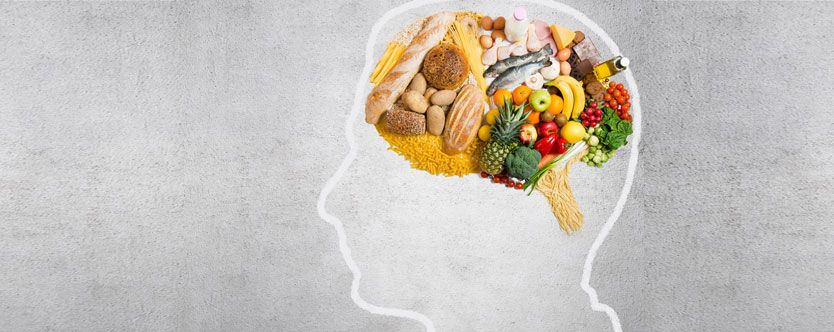
It is often confusing to know what to eat and what not to eat in this everchanging field of Health and Nutrition. Today we are bombarded by an avalanche of information from Newspapers, Magazines, Televisions, Facebook, Internet etc.
For instance, some experts say eat peanuts, they are low in glycemic index. Others say don’t eat peanuts, they are rich in fat. Some say turn Vegan, others say Vegan has problems with protein and B12 deficiency. Some say eat Mangoes, even if you are diabetic. Others say avoid Mangoes as they are rich in fructose which is bad for liver health and causes weight gain. Some say turn vegetarian, others say eat some good quality animal protein. Eat whole eggs, do not eat whole eggs (eat the white). Some say eat ghee others say don’t eat too much ghee. Some say coconut oil is good for your health. Others say it is not good and so on…
So, leafing through my over 3 decades of experience in the field of Nutrition, I would like to clear this confusion.
Let’s firstly understand, that each one of us is ‘unique’:
We have unique biochemistry, unique metabolism, unique family history of medical problems, unique sets of genes, each one of us is a unique masterpiece. So, what applies to one may not apply to the other.
Are peanuts good for you? Is it better to be Vegan? Is it bad to eat non-veg? Are whole eggs healthy? Is coconut oil good? Should we eat mangoes even if we are diabetics?
Rather than give a simple yes, to whether it is better to be vegetarian or it’s healthier to have non-veg, let me explain the concept that each one of you is unique.
You all know that we all have the same structure and organs, but we are biochemically different. We metabolize food and nutrients differently. Our blood test show different results based on our uniqueness for eg. – we all have the same brain structure, but we think differently. We have the same eyes, nose, mouth but we all look very very different. So, lesson number one is that we are all unique. So, an individual specific approach to health is needed and this is the approach of the future. For instance, some people may feel sensational on a frequent eating mini meal plan. Others may feel bloated, may gain weight on such a regime especially if they have leptin resistance and insulin resistance.
Having established that it is important to understand that ‘Balance’ and ‘Moderation’ is the key to good health. All foods as they exist in nature and if not tampered with, do have awesome disease preventing and health promoting properties. And if eaten in moderation, they impart health benefits. However, if an obese person or a diabetic person eats a large portion of rice, ghee, mangoes, sugar and fried food frequently, not only will it cause more damage to his health, he will also go on a downward spiral towards more ill health and disease. At the same time, a rickshaw puller in Kanpur should most definitely eat ghee, mangoes, rice and sugar. The sedentary inactive urban individual may do well on freshly cooked vegetables, fresh greens and whole grain rotis and whole dal. Our modern stressful lifestyle demands that we eat in moderation and balance. The truth is, we need to eat food (whether it is coconut oil, or ghee, or fried food or mangoes, or fish, or turn vegetarian) based on our individual specific needs, lifestyle, medical history and genetics. All this is possible by using an individual specific approach. One size does not fit all!
It’s important to understand that one needs to match the food therapy to body chemistry and one’s lifestyle requirement, in order to be able to improve one’s health. At a younger age (below 35- 40 years) you may be able to consume calorie-rich food frequently and also burn it off. But as you grow older your body needs to consume nutrient-dense foods that are high in fiber and moderate in calories and carbs. Let us apply our logic and intelligence to what we choose to put into our mouth rather than swing from the chandelier and chase every new diet and eat every newly announced superfood.
So, in summary, remember that:
One size does not fit all. A patient-specific approach is important in order to make any significant health improvements. Targeted nutrition therapy is important to promote healthy genetic expression. Balance and Moderation is the key to good health. Most people are in a hurry and yet happy to react to misleading health information which appears in the media with alarming regularity. It is important to exercise portion control on all foods including ‘health foods’. Everyone knows that eating too much fat, too many carbs, too much fruit, sugar, ghee will make them obese and unhealthy and yet they like listen to experts who highlight the benefits of all such foods. Almost everyone is looking for a magic bullet to help dissolve their health problems and weight problems. It is wise to eat when hungry and in moderation. It usually takes about 4 hours to digest a moderate lunch. So, keeping at least a 4-hour interval in between meals makes complete sense, rather than force feeding your body every couple of hours. As you age many bodily functions slow down including your digestive system.
The bottom line is that ‘Nutrition’ has become quite like the ‘Fashion Industry’, where fads come and go at predictable intervals. Most people interested in food & health have more than a passing curiosity on what’s the latest superfood in the market and follow it blindly. One needs to apply logic and common sense and take ‘palate pleasing’ advice with a pinch of salt.
As Published on January 14, 2019 in Hindustan Times
